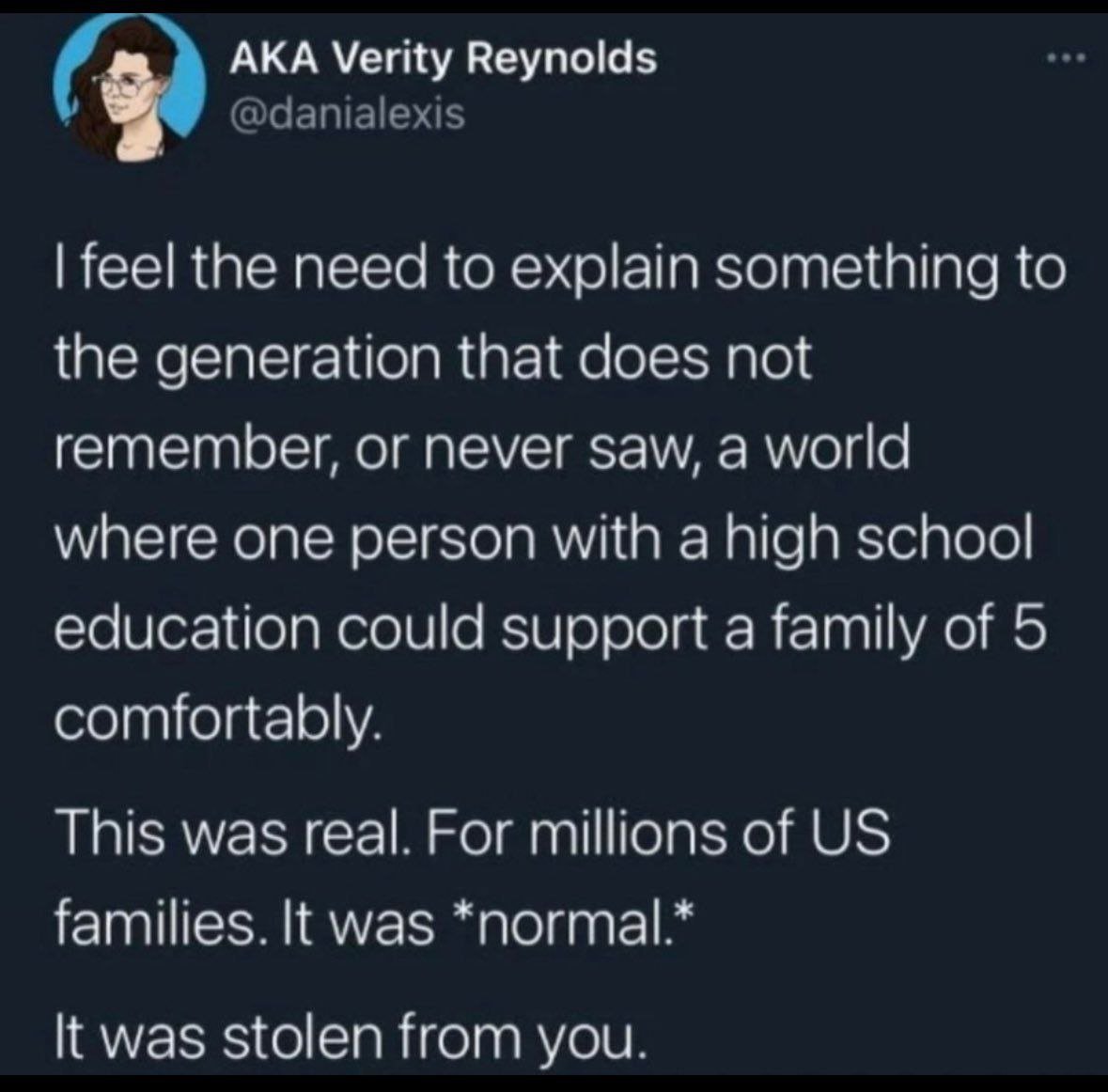I suspect affordable housing is the main thing here that has been stolen.
The whole mess of the economy is hanging on that one thing. It gobbles up every spare penny. There isn't enough of it, and the price is only being constrained by how much the highest bidder is prepared to pay. The highest bidders are professional couples, no kids. If that's not you, you ain't getting shit.
As a wise man once sang, "build fuckin' houses everywhere, millions of the cunts".
